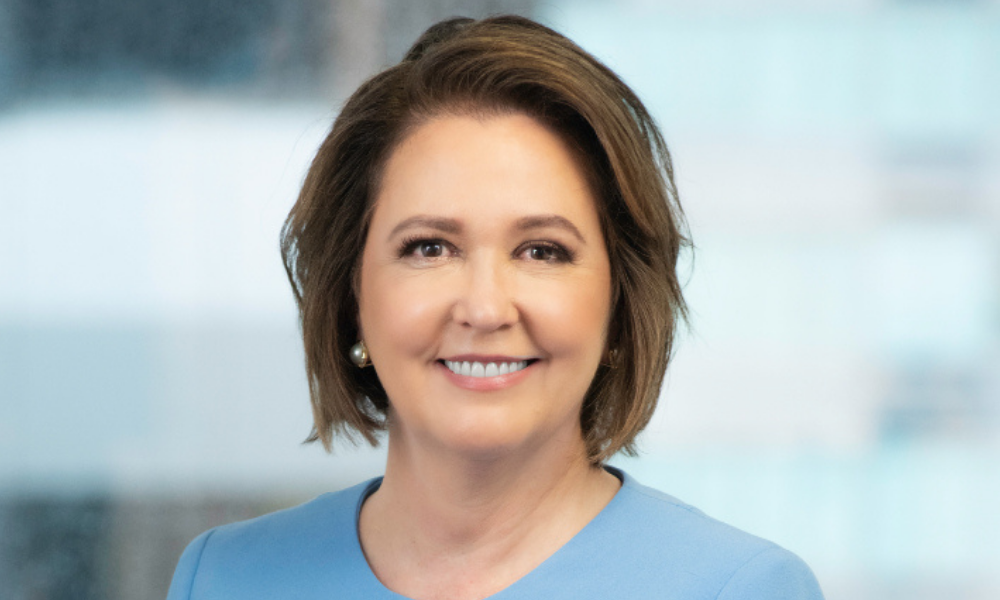CEO says it's time to get ready

As the country gets closer to achieving its initial 70% vaccination target, Australians have started to make plans after both NSW and Victoria announced their roadmaps out of lockdown. According to Mortgage Choice CEO Susan Mitchell (pictured above), brokers should therefore prepare to be busy.
Speaking to MPA, she said things could heat up further in the property market following an expected increase in listings.
“I would encourage brokers to be prepared for a potential flurry of housing activity once lockdowns and restrictions come to an end,” she said. “In NSW and Victoria, the spring selling season will likely step up a gear in the near future as vendors and buyers become more confident, while South Australia and Western Australia are already seeing increased sales volumes.”
Her comments followed a slow start to spring after restrictions in Victoria meant buyers were unable to physically inspect properties. According to REIA president Adrian Kelly, this effectively shut down the real estate industry in Melbourne after scores of vendors took their properties off the market. But a shortage of stock this spring hasn’t just been relegated to Victoria. According to the REIA, nationwide spring listings have been down by 20-40% this year.
With the ability for in person, one-on-one inspections returning to Victoria last week, listings could be set to increase again before potentially surging once lockdown ends. Before restrictions came into place in the state, Melbourne had experienced a fourfold surge in new listings year on year as a result of pent-up stock caused by last year’s hard lockdown. Sydney too is likely to see more properties enter the market once lockdown is over, according to REINSW CEO Tim McKibbin. He recently told MPA that buyers would be better to sell now rather than wait for restrictions to ease.
Read more: REINSW CEO: it's better to sell now rather than wait
But it’s not just increased market activity that brokers should prepare for, said Mitchell. There were a range of things that brokers as business owners needed to consider in preparation for the end of lockdown.
“It’s probably been on brokers’ minds for some time, but when lockdowns eventually lift there will be several decisions to make as a business owner – do you open your shopfront straight away, do you have a policy on vaccinations, and what to do if staff members contract COVID-19,” she said.
These were considerations that aggregators or franchisors could help provide guidance on, she added.
While many industries have been tipped to experience a speedy bounce back once life returns to relative normality, there will be clients who don’t recover financially for some time.
Read more: Life after lockdown
“Looking further ahead, brokers will have customers impacted in many different ways by the pandemic, and these impacts may linger for a long time,” said Mitchell. “There needs to be empathy and understanding about every individual situation.”
While the end of lockdown has created better consumer confidence, there is still a way to go before restrictions ease. The September quarter is expected to hold a contraction, while the December quarter could go either way according to many economists. Recent studies have pointed to a potential increase in the number of people who experience mortgage stress should the country enter into a double dip recession. Mitchell said she didn’t think either would occur. She said that brokers had been playing a vital role in helping consumers prevent and manage mortgage stress for quite some time.
“Brokers often play the role of personal finance educators,” she said. “Anecdotally brokers often tell me they’ve advised strategies for homebuyers to work harder on their finances to reach their deposit or so they can be confident in making mortgage repayments. This can involve the customer going away and working on budgeting for several months to reach their desired goal.
“Brokers also know what lenders look for in a loan application and can read the signs when there’s uncertainty about the future management of a mortgage. Brokers also have the Best Interests Duty obligations in place to make sure they always have the customer’s position at the heart of every recommendation.”

According to MoneyQuest managing director Michael Russell (pictured immediately above), it was difficult to know exactly how mortgage holders would fare if the country did go into recession again.
“The last recession was in the early 1990s when home loan rates peaked at 17% and unemployment jumped from 7% to over 10%,” he told MPA. “I was writing loans back then, as well as assisting mortgage holders who had sadly been impacted.
“While I don’t think that home loan rates or unemployment rates will ever spike to those heights again, should Australia return to a period of prolonged recession, our job will be to continue to support both our existing customers and our new customers as best we can.”
He added that the last 18 months had “taught us a great deal about how to support and communicate with customers during difficult periods.”
He said that brokers would continue to fulfil an important role as impacted states and territories moved out of lockdown.
“Brokers will continue to do what they have been doing all along,” he said. “They will continue to be visible and readily available to help their customers. They will also make a concerted effort to reach out to customers who are looking to upgrade their homes and/or reignite their wealth creation dreams via property investment.”
In order to protect their livelihoods during these still uncertain times, he said brokers should always act in the best interest of clients while aligning themselves with the right brokerage group.
“Quality groups provide ongoing support and assistance to their networks, so it is important for brokers to remember to turn to their franchisors for help with business planning, professional development, and strategies to enhance business growth,” he said.



